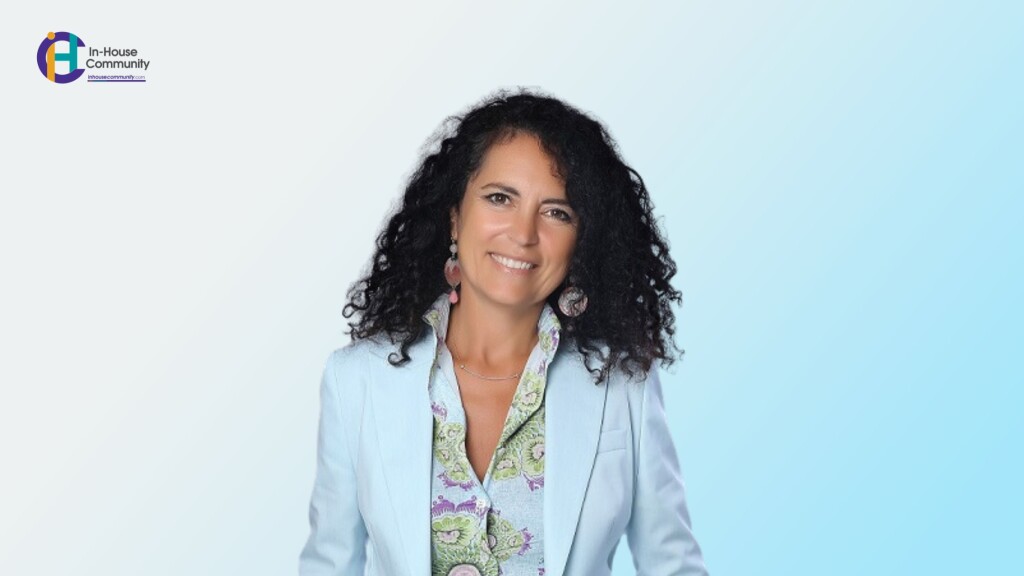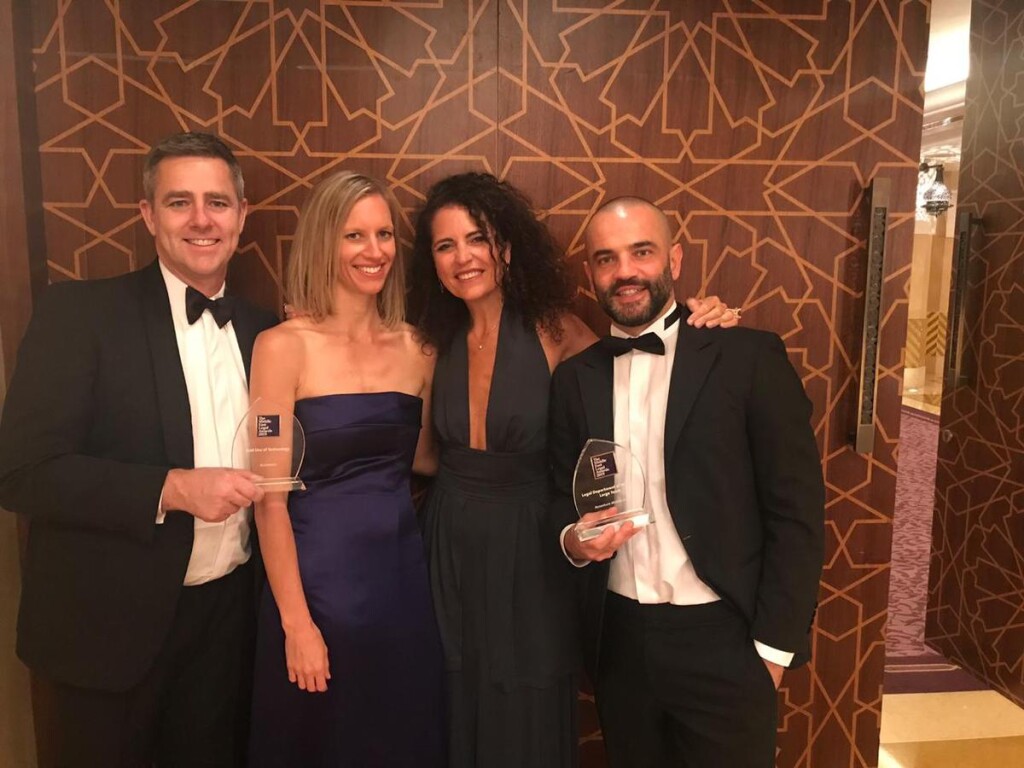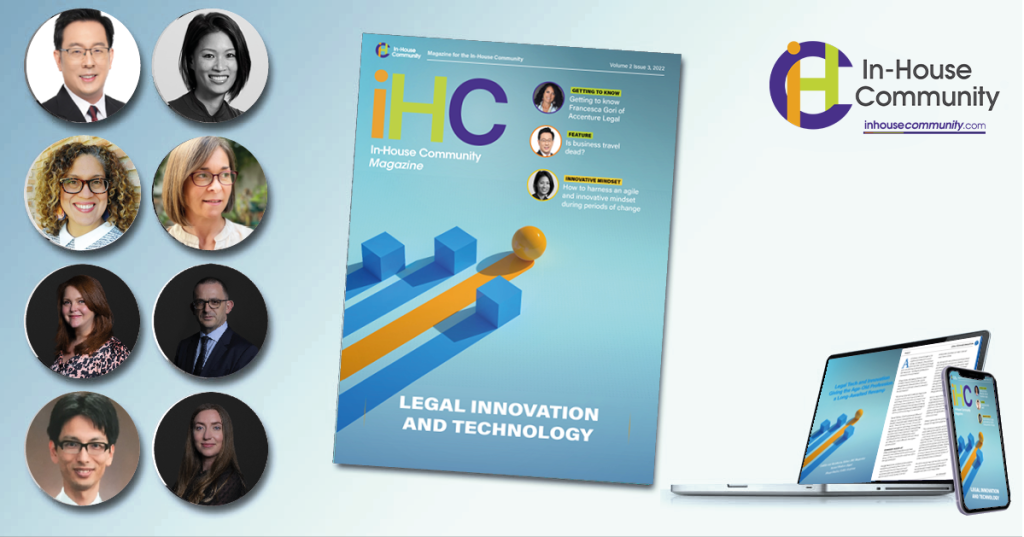
Cultivating purpose-driven values in-house to better serve clients and communities
1. WHAT GENERAL TRENDS ARE YOU SEEING EMERGE IN THE WORK OF ACCENTURE AND YOUR LEGAL TEAM ACROSS GROWTH MARKETS, OR BELIEVE WILL IN THE NEAR FUTURE?
Every business is a digital business, with technology changing how we live, work and build relationships; it is a powerful enabler. The pandemic accelerated this change, including how we provide legal services. With a team of around 3,000 people worldwide, Accenture Legal is one of the biggest in-house legal teams globally – this means we have both the capacity and imperative to lead the change in the legal industry. One area we have focused on that I see being a key area of impact for the wider industry is the use of Artificial Intelligence to gain insights from millions of contracts and chatbots to create a seamless user experience.
“Every business is a digital business, with technology changing how we live, work and build relationships; it is a powerful enabler.”
This approach, as well as the use of big data for compliance and smart, customized dashboards to facilitate strategic reviews, allows our people to be at their best, focus on the right priorities and decrease repetitive work.
2. CAN YOU TELL US ABOUT THE CULTURE AND VALUES OF ACCENTURE AND HOW THESE MAY BE BOTH SHAPED BY AND SHAPE THE COUNTRIES IN WHICH YOU WORK?
- The team is helping to build a diverse pipeline and increase representation by establishing a legal internship program for female nationals of the United Arab Emirates and Saudi Arabia. One of our Saudi legal interns subsequently secured an Export Control Lead role for a prominent defense organization.
- Accenture’s Legal Access and Legal Corporate Citizenship programs bring opportunities for the team to give back to the communities within which we live and work – and participate in mentoring, teaching and volunteering programs in the region (including in partnership with Paris Sorbonne, the University Leadership Council and Middlesex University in Dubai). They also enable the team to become involved in UN research programs in the areas of children’s rights and sustainability.
• A few recent highlights:
- Fighting Domestic Violence: Connecting To Heroes – Volunteers are helping to identify non-governmental organizations that are engaged directly with domestic violence survivors, family members, stakeholders and communities to help improve systems that are designed to address the safety and needs of survivors. We are interviewing organizations to understand how they operate and address domestic violence and contribute to a global directory of organizations in this area of social service and legal advocacy. In the second phase, we will explore the further pro bono support we can provide to these organizations.
- Justice In Action Sprints – We run Justice in Action Sprints several times each year. These are community days of action in partnership with Baker McKenzie to support legal rights through substantive pro bono projects. At the Sprint, the team works on projects related to human rights, tackling division and access to justice.
- INJAZ UAE Company Program – This is a UAE initiative, of which Accenture is one of the sponsors. The program supports teams of high school/university students in building a start-up idea and creating a business case, then joining the national competition at the academic year-end. Legal members are acting as mentors assigned to a student team to support during an academic year.
- Pathways in Law – We run 2-day Pathways in Law programs, inviting students who have been identified by their local universities as high performers and coming from underrepresented backgrounds to spend 2 days with Accenture Legal to introduce them to the role of an in-house lawyer through sessions with various SME teams; as well as providing practical experience of our day to day role through workshops.
Our purpose is to deliver on the promise of technology and human ingenuity, and it is a clear statement that connects us to the incredible work we do each day, creating value for our clients, people, shareholders, partners and communities. The purpose is a crucial lens through which companies can evaluate their strategy, priorities, and the opportunities they create for their people. It is not just a statement of social impact – it represents both the value and values you want to be known for in the market.
Accenture’s commitment to ethics, human rights and strong corporate governance is a key driver of our business strategy and is essential to safeguarding our people, clients, brand and financial performance. It is the foundation on which we build trust.
“Accepting people for who they are and letting them be themselves frees them to focus on performing and allows them to thrive. Equality is nonnegotiable.”
Accenture also believes that responsibility for environmental, social and governance (ESG) matters starts at the top. Our Board, Chair, and CEO embody this responsibility cascading throughout the business. We have a clear governance structure to help us achieve our goals and reflect these objectives throughout the organization while guiding our strategic approach.
At Accenture, we are unwavering in our commitment to inclusion and diversity. This enables us to attract, develop, inspire and reward top talent. And it creates an environment that unleashes innovation, allows our people to perform at their very best and underpins a culture in which everyone feels they have an equal opportunity to belong and build a career. Our team in the Middle East now has approximately 50% female and 50% male team members, and we have around ten nationalities.
For us, pay equity means that our people receive fair and consistent pay when considering the similarity of work, location and tenure at the career level. We conduct an annual pay equity review and have dollar-for-dollar, 100% pay equity for women compared to men in every country where we operate.
Moreover, by ensuring inclusion alongside diversity, businesses increase productivity. Accepting people for who they are and letting them be themselves frees them to focus on performing and allows them to thrive. Equality is non-negotiable. We are absolutely opposed to discrimination based on ethnicity, gender, sexual orientation, disability, or any other dimension of diversity. We want to be a catalyst for positive change, starting with building the world’s most inclusive and diverse team.
3. THE PANDEMIC AND PREVAILING ECONOMIC INSTABILITY HAVE, IN MANY CASES, NECESSITATED A BUDGETARY RETHINK. WHAT IS YOUR APPROACH TO KEEPING INTERNAL STAKEHOLDERS HAPPY WHILE PURSUING THE PROJECTS YOU DEEM IMPORTANT FOR YOUR TEAM?
Exponential technological changes and the impact of COVID-19 have raised change to a new level, requiring companies to reimagine everything and requiring economies and entire industries to rebuild or refocus. Learning is in our DNA. We commit to offering our people opportunities to acquire new skills and strengthen their readiness to advance in their roles and into new opportunities.
4. AS A LEADER OF A MULTIJURISDICTIONAL TEAM, WHAT DOES LEADERSHIP MEAN TO YOU AND WHAT VALUES DO YOU STRIVE TO CULTIVATE IN YOUR TEAM?
At Accenture, we focus on employee growth, and for young team members, that means appointing them to work on challenging projects such as acquisitions. Professional development, training, workshops, career counseling, and participation in professional, social and community events are all tools and opportunities we offer our employees.
In the UAE and Saudi Arabia, we are a team of approximately 20 members. In the region, training is just one part of the overall investment Accenture makes to help its people succeed professionally as well as personally. I was happy to have one of our team members in Saudi Arabia, Thamari Alhadrami, selected as one of the executives and future leaders of the She Leads program, which is a leadership development, mentoring and networking program for female leadership talents organized by the Swedish Embassy. She has successfully brought herself outside her comfort zone and become one of the key players in a post-merger integration of an important acquisition for Accenture in the Kingdom.
5. AS A GC WITH EXPANSIVE RESPONSIBILITIES, HOW DO YOU FIND A MEASURE OF WORK/LIFE BALANCE FOR YOURSELF?
It is a challenge, and I am not sure I have a perfect work/life balance. I make sure I ask for help, especially when I struggle with the workload and not having time to rest. Being a mother, being away from your relatives and being an expatriate leading a group of legal professionals worldwide requires even more effort. However, I prefer to focus on the incredible opportunities I have rather than on how difficult it is to overcome the challenges I have every day. I often wake up thinking about something new I can learn today with a completely open mindset as a lawyer, mother, daughter, or colleague.

6. LASTLY, WHAT ADVICE DO YOU HAVE FOR ASPIRING LAWYERS, LOOKING TO ADVANCE THEIR CAREERS ABROAD AS YOU HAVE DONE; TO EXPLORE NEW HORIZONS?
Being curious and having the courage to be ready to learn. We always need to challenge ourselves and avoid being perfectionists. While working and living in Italy where I studied and became a certified lawyer, I was in my successful and comfortable zone. My senior leaders relied on my advice, and I was their trusted lawyer. Despite that, I decided to move out.
Click on the image below to read more articles from Dec 2022 issue of IHC Magazine including Legal Innovation and Technology















